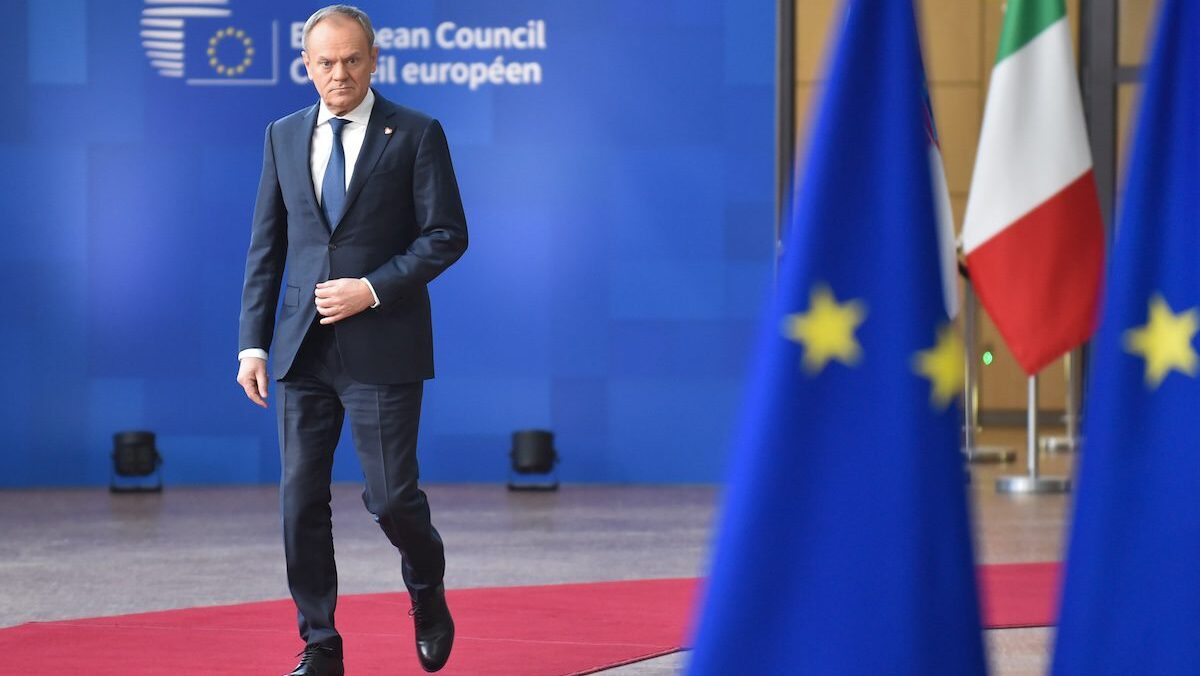Polish Prime Minister Donald Tusk announced that he will temporarily suspend the right to claim asylum in Poland for migrants who cross the borders from Belarus. He sees such crossings as part of Russia’s ‘hybrid warfare’ against the East Central European member states.
It’s obvious that the previous Law and Justice (PiS) government would have been sanctioned by the European Union for such an initiative. But will Brussels act against one of its own?
Anticipating that such an unprecedented move would stir up emotions, Tusk stressed that he would “demand” the EU’s acceptance of his decision during this week’s EU Council Summit.
Whether Europe likes it or not, Poland’s new migration strategy will include “the temporary territorial suspension of the right to asylum,” Tusk told a rally on Saturday, October 12th. To forestall any challenges from Brussels, the PM said he “will demand recognition in Europe for this decision.”
Tusk will likely receive the green light—despite previous warnings from the European Commission against violating the human rights of asylum seekers—simply because Tusk hails from Commission chief Ursula von der Leyen’s political family, the European People’s Party (EPP)—not to mention being a veteran of the Brussels establishment.
Tusk is the leader of the centrist Civic Coalition that, despite receiving fewer votes than the previous conservative ruling party, Law and Justice (PiS), clawed his way to power in 2023 with the help of a wide coalition of other center-right, liberal, and even social democratic parties.
Similarly to Hungary’s Fidesz, the PiS government had been constantly criticized and harassed by the Brussels elite for its conservative, nationalist policies, including its tough stance on illegal migration. Since he came to power, Tusk has been employing very similar tactics at the country’s besieged eastern border—only to receive praise and support from various EU institutions.
Nevertheless, suspending asylum rights outright represents a whole new level for this dynamic, which Brussels might struggle with.
On one hand, such a precedent-creating move could open a Pandora’s box, prompting an EU-wide domino effect where other member states request the same treatment. This was part of the reasoning behind the European Court of Justice decision that found against a similar Lithuanian policy a few years ago, ruling it unlawful and ‘incompatible’ with EU human rights norms.
On the other hand, Tusk is an important ally of von der Leyen’s ‘pro-European’ establishment forces, and Poland is the EU’s fifth largest country, having much more say in EU matters than Lithuania. Just as Tusk cannot afford to cede ground on migration to PiS ahead of next spring’s presidential elections, the EU Commission cannot afford to alienate Tusk after praising him as a hero for ‘liberating’ Poland from PiS.
At the same time, Brussels seems also to lack choices, as the Tusk government is prepared to go through with the plan regardless of EU recognition of its legality.
“Our security is under pressure. We have to look for special measures,” Tusk’s EU affairs minister, Adam Szłapka commented. Foreign Minister Radosław Sikorski was even more direct, arguing that Poland would
not respect or implement any European or EU proposals if we are certain that they threaten our security.
The argument stems from the fact that Poland—among others, such as Finland and the Baltic states—is not only dealing with illegal migrants but an orchestrated effort by Russia and its ally Belarus aimed at destabilizing EU member states. This so-called ‘hybrid warfare’ (that we describe in more detail here) consists of promising easy access to the EU for mainly Iraqi and Afghan migrants via fake ‘travel agencies’ and then transporting them straight to the bloc’s external borders where they are left to cross on foot.
The pressure on the border has been steadily growing recently, with Poland reporting 2,500 illegal crossing attempts just last month and more than 26,000 so far this year.
In September, the EU’s Human Rights Commissioner recognized “the challenges posed by the instrumentalization of migration” by Belarus, but also slammed Poland for closing its doors without assessing migrants’ individual asylum claims, as it “does not allow for full respect of international human rights standards.”
The issue will probably dominate the discussion during the upcoming EU Council Summit on October 17-18th. Other than migration, the agenda includes discussing further military support for Ukraine, finding a common approach to the war in Lebanon, and assessing Europe’s competitiveness crisis in light of the Draghi report.






